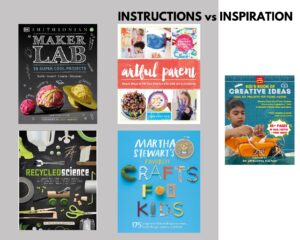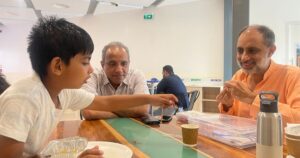Every parent wants their child to reach their full potential and succeed in life. But traditional approaches to education and parenting may not always be the best way to help children unlock their true potential. In today’s fast-paced and ever-changing world, it is important to adopt a different approach that takes into account the unique needs and abilities of each child.
One of the key aspects of this different approach is recognizing that every child is unique and has their own set of strengths and weaknesses. Instead of trying to fit them into a one-size-fits-all educational system, we need to create an environment that allows them to thrive and develop their talents.
This can be achieved by providing children with a wide range of experiences and opportunities to explore their interests. Instead of focusing first on academic subjects, we should encourage them to pursue their passions and develop skills that are important to them. Whether it’s music, sports, art, or technology, each child should have the chance to discover their own talents and interests.
The Problem
Majority of parents often tell their kids, “First finish your studies, then do whatever you want.”
While this advice may seem logical, it overlooks an important aspect of a child’s development. Academics, as they are traditionally approached, can be forced and structured, often failing to align with a child’s natural way of learning. When the first step towards education does not create an innate happiness in the child, the subsequent rewards may not yield the desired outcome. This can result in a child who struggles both academically and in other aspects of life, unable to perform at their best in any area.
However, there is a growing body of research that suggests a different approach to education – one that focuses on nurturing a child’s innate curiosity and individual strengths. This approach, often referred to as personalized learning, recognizes that each child is unique and has their own preferred way of learning and understanding the world around them.
Personalized learning takes into account a child’s interests, learning style, and pace of learning. It encourages them to explore topics that they are passionate about, allowing them to develop a deep understanding and mastery in those areas. By tailoring the learning experience to the child’s individual needs, personalized learning creates a sense of ownership and motivation, making the learning process more enjoyable and effective.
Moreover, personalized learning goes beyond the traditional classroom setting. It embraces a holistic approach to education, recognizing that learning happens not only in textbooks but also through real-life experiences, interactions with peers, and engagement with the community. This approach encourages children to actively participate in their own learning, fostering critical thinking skills, creativity, and problem-solving abilities.
Furthermore, personalized learning recognizes that success in life is not solely determined by academic achievements. It acknowledges the importance of developing social-emotional skills, such as empathy, resilience, and self-awareness. These skills are essential for navigating the complexities of the modern world and building meaningful relationships.
In conclusion, while the traditional approach to education may have its merits, it is crucial to consider the benefits of personalized learning. By nurturing a child’s innate curiosity, individual strengths, and holistic development, personalized learning provides a more effective and fulfilling educational experience. It empowers children to become lifelong learners, confident in their abilities, and equipped with the skills needed to thrive in an ever-changing world.
When it comes to raising children, there is often a strong emphasis on academic success and achievement. Parents want their children to excel in school and pursue careers that will provide financial stability and security. While these goals are certainly important, it is equally crucial to prioritize the happiness and well-being of our children.
By allowing our children to engage in activities that bring them genuine happiness, we are not only fostering their joy but also setting them up for overall development and success. When a child is passionate about something, whether it be painting, playing a musical instrument, or participating in sports, they are more likely to invest time and effort into honing their skills and improving their abilities.
Embracing our child’s passions and interests serves as a catalyst for their growth and development. When they are engaged in activities that bring them happiness, they are more likely to develop a sense of purpose and fulfillment. This sense of purpose then spills over into other areas of their life, including academics.
When a child is happy and fulfilled, they naturally become more confident and motivated. They approach challenges with a positive mindset, knowing that they have the ability to overcome obstacles and achieve their goals. This confidence translates into the classroom, where they are more likely to actively participate, ask questions, and take risks in their learning.
Moreover, when a child is happy, they are more likely to develop strong social skills and form meaningful relationships. Happiness breeds positivity, and positive individuals are often more approachable and empathetic. This ability to connect with others and navigate social situations is a valuable skill that will serve them well throughout their lives.
As parents, it is our responsibility to prioritize the happiness and well-being of our children. By nurturing their happiness and embracing their passions, we are not only setting them up for overall development but also equipping them with the tools they need to succeed academically and in life. So, let us shift our focus from solely academic achievement and instead create an environment where our children can truly thrive and be happy.
Personal Experience
As a father to my son Laksh, a grade-2 student, I have implemented this alternative approach. I encourage him to pursue his DIY projects every day, not just on holidays like other children are allowed to. By prioritizing his happiness and allowing him to engage in activities he truly enjoys, I have witnessed remarkable results. Laksh’s sense of joy and fulfillment has had a positive impact on his academic performance, even without our direct involvement. He has become self-directed, seeking guidance only in a few areas where he feels the need to enhance his knowledge further.
One of the key benefits I have observed in Laksh through this approach is his increased creativity and problem-solving skills. By allowing him to explore his interests and work on his own projects, he has developed a unique perspective and the ability to think outside the box. This has translated into his academic work as well, where he often comes up with innovative solutions to problems that his peers may not have considered.
Furthermore, this alternative approach has also fostered a sense of independence and self-confidence in Laksh. By giving him the freedom to pursue his passions, he has learned to trust his own abilities and make decisions for himself. This has been invaluable in his personal growth, as he is now more willing to take risks and step out of his comfort zone.
Another significant advantage of this approach is the development of essential life skills. Through his DIY projects, Laksh has learned practical skills such as problem-solving, critical thinking, and time management. These skills are not only essential for academic success but also for his future career and personal life. By allowing him to engage in hands-on activities, he is gaining valuable experience that will serve him well in the long run.
Moreover, this alternative approach has also had a positive impact on our parent-child relationship.
By supporting Laksh in pursuing his interests, we have built a strong bond based on trust and understanding. We have become more involved in his projects, offering guidance and encouragement when needed, which has created a sense of teamwork and collaboration between us. This has not only strengthened our relationship but also provided us with opportunities to learn and grow together as a family.
By prioritizing Laksh’s happiness and allowing him to pursue his DIY projects on a regular basis, we have witnessed numerous benefits. Not only has his academic performance improved, but he has also developed essential life skills, increased creativity, and gained a sense of independence. This alternative approach has not only had a positive impact on Laksh’s personal growth but has also strengthened our parent-child relationship. It is a testament to the power of allowing children to follow their passions and interests, and the remarkable results that can be achieved through this approach.
In conclusion, the benefits of nurturing a child’s happiness and allowing them to pursue their passions are supported by a wealth of research and expert opinions. By fostering intrinsic motivation, promoting holistic development, building confidence and self-esteem, harnessing passion as a motivator, and embracing individualized learning, we can create an educational environment that not only enhances academic performance but also nurtures the overall well-being and growth of our children.
Capt Venkat





